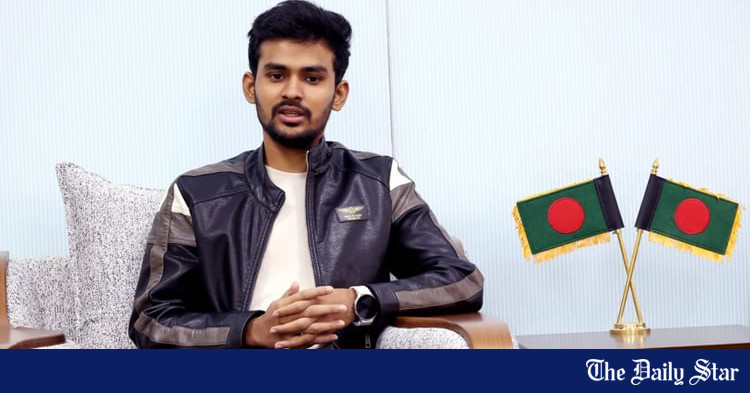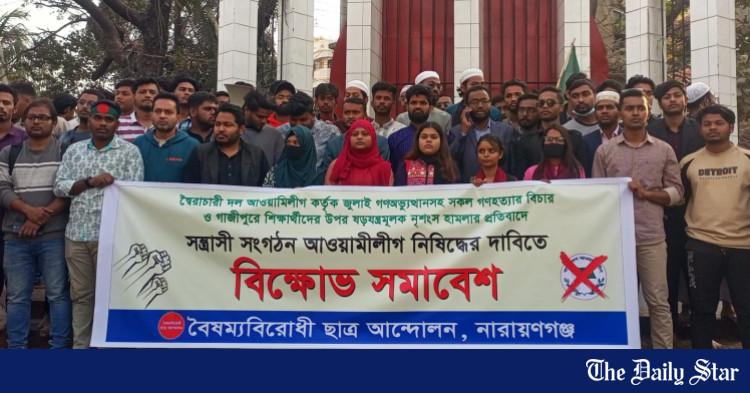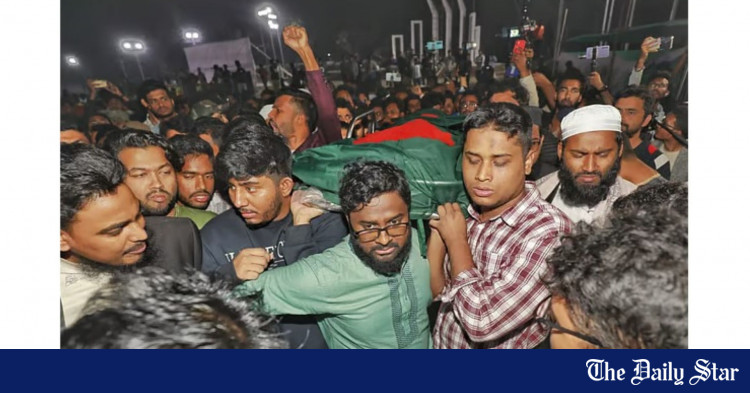Saif
Senior Member
- Messages
- 17,442
- Likes
- 8,381
- Nation

- Residence

- Axis Group


Chhatra League was the main foot soldier of fascism: CA’s press secretary
The chief advisor's Press Secretary Shafiqul Alam has described Bangladesh Chhatra League, the banned student wing of Awami League, as the ‘main foot soldier’ of fascism. “Many people ask why the Chhatra League was banned. Look at the noble movement these campus students initiate
Chhatra League was the main foot soldier of fascism: CA’s press secretary
bdnews24.com
Published :
Nov 09, 2024 15:59
Updated :
Nov 09, 2024 16:15

The chief advisor's Press Secretary Shafiqul Alam has described Bangladesh Chhatra League, the banned student wing of Awami League, as the ‘main foot soldier’ of fascism.
“Many people ask why the Chhatra League was banned. Look at the noble movement these campus students initiated. How many such great movements have taken place in Bangladesh? If you look back, the movement of 1990 was also noble,” he said during a seminar titled "We Want a Safe Bangladesh," held at the National Press Club on Saturday.
He said, "But this movement, with its reach, impact, and the way it resonated with people, showed Bangladesh’s place in the world. Chhatra League opposed this movement and was the ‘main foot soldier of fascism’."
Criticising the Chhatra League's actions over the past 15 years, he continued: “What they did was create a narrative of fascism. Many joined the Chhatra League because they thought it would guarantee a job. You created discrimination in the entire employment system. The boy from my village who joined the Chhatra League got a job, but the other student, who is more educated, didn’t get any job.
"They (Chhatra League) got jobs in the police and intelligence agencies. They held the entire nation hostage. Joining Chhatra League was your ticket to heaven, while everyone else had a miserable life. When police came for verification, the sons of the Awami League and Chhatra League said, ‘this boy is a BNP supporter, don’t give him a job.’"
He also pointed out the role Chhatra League played in the police's aggressive actions against student movements, saying: “When the police acted so ruthlessly, firing indiscriminately at our young brothers, you can trace the background of these people to Chhatra League.
"A brutal police system was formed, and its main component was the Chhatra League. To ensure that this never happens again, we need to make our educational institutions safe.”
Referring to the interim government’s efforts to prevent campuses from becoming strongholds for criminals, he added: “We are trying to ensure that campuses do not become havens for terrorists. The government that follows will also need to take this up, and we all need to commit to this.”
He stressed the need for safe campuses for global competition, saying: “Our government, or we, want Bangladesh’s educational institutions to be safe. We need to make our campuses safe for global competition so our children can focus more on their academic studies.”
Shafiqul said, "We want our children to be able to compete with students from any part of the world. They should proudly take Bangladesh forward. To achieve this, we must create an ideal, peaceful campus environment."
“We want our children to draw inspiration for building Bangladesh from their campuses. Campuses should be places for ideal debates," he added.
bdnews24.com
Published :
Nov 09, 2024 15:59
Updated :
Nov 09, 2024 16:15
The chief advisor's Press Secretary Shafiqul Alam has described Bangladesh Chhatra League, the banned student wing of Awami League, as the ‘main foot soldier’ of fascism.
“Many people ask why the Chhatra League was banned. Look at the noble movement these campus students initiated. How many such great movements have taken place in Bangladesh? If you look back, the movement of 1990 was also noble,” he said during a seminar titled "We Want a Safe Bangladesh," held at the National Press Club on Saturday.
He said, "But this movement, with its reach, impact, and the way it resonated with people, showed Bangladesh’s place in the world. Chhatra League opposed this movement and was the ‘main foot soldier of fascism’."
Criticising the Chhatra League's actions over the past 15 years, he continued: “What they did was create a narrative of fascism. Many joined the Chhatra League because they thought it would guarantee a job. You created discrimination in the entire employment system. The boy from my village who joined the Chhatra League got a job, but the other student, who is more educated, didn’t get any job.
"They (Chhatra League) got jobs in the police and intelligence agencies. They held the entire nation hostage. Joining Chhatra League was your ticket to heaven, while everyone else had a miserable life. When police came for verification, the sons of the Awami League and Chhatra League said, ‘this boy is a BNP supporter, don’t give him a job.’"
He also pointed out the role Chhatra League played in the police's aggressive actions against student movements, saying: “When the police acted so ruthlessly, firing indiscriminately at our young brothers, you can trace the background of these people to Chhatra League.
"A brutal police system was formed, and its main component was the Chhatra League. To ensure that this never happens again, we need to make our educational institutions safe.”
Referring to the interim government’s efforts to prevent campuses from becoming strongholds for criminals, he added: “We are trying to ensure that campuses do not become havens for terrorists. The government that follows will also need to take this up, and we all need to commit to this.”
He stressed the need for safe campuses for global competition, saying: “Our government, or we, want Bangladesh’s educational institutions to be safe. We need to make our campuses safe for global competition so our children can focus more on their academic studies.”
Shafiqul said, "We want our children to be able to compete with students from any part of the world. They should proudly take Bangladesh forward. To achieve this, we must create an ideal, peaceful campus environment."
“We want our children to draw inspiration for building Bangladesh from their campuses. Campuses should be places for ideal debates," he added.

.webp?rect=0%2C0%2C640%2C336&w=1200&ar=40%3A21&auto=format%2Ccompress&ogImage=true&mode=crop&overlay=&overlay_position=bottom&overlay_width_pct=1)



